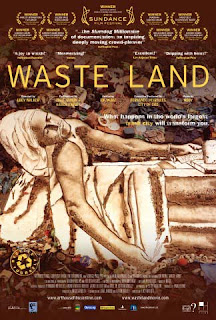Today I came across a documentary film that I feel really ties together with the type of situation and people I am working with here in Argentina. This movie inspired me and reminded me that one of the greatest ways of fighting injustice is through knowledge and education. Writing these monthly newsletters and blog entries are so important to me because sharing my story and realizations with you all is one of the only ways I can actually help the people I am working with this year as well as others like them. So far in my living life in the US, I find that sometimes I get caught up in my own life and daily schedule. This makes it easy to live in my own personal bubble where I do not know what is happening in other parts of the world and where I find myself not helping those in need in any way.
This year in Argentina, a zeal has grown stronger in me. It was always present but being here has fanned the small flames within me making a well-built fire. I am more passionate about changing poverty, inequality, child abuse, and environmental degradation. In the United States there is a common misperception that the causes of poverty are highly related to personal factors such as a lack in work ethic. I think that such a belief discounts the many structural factors that prevent people from excelling in American society. Factors that I think cause and perpetuate poverty include unequal access to education, a deficit of jobs, broken and/or dysfunctional families, health issues (including mental illness), discrimination, and language barriers. In order to truly address poverty in the United States attention to these structural factors is essential.
This year I have begun to put my dedication to work for social justice into action by working with marginalized children and youth in Argentina. However, one of the main things that I have learned is how complex and arduous it is to change such long-standing problems such as poverty and inequality. Often I feel that there is not much I can do. What can I do without inadvertently harming the person I intend to help? What long-term solutions might there be for problems like poverty? These are just a few of the questions I have been asking myself so far this year.
While many of my questions remain unanswered, I have learned that the injustice these children face every day takes a lot of time and effort to heal. Change does not appear over night as I might wish it could. This has been difficult for me to accept because it seems absurd that anyone on this plentiful earth should be starving. But this absurdity also makes it even more important to fight to end social injustice. For now I am giving them the only gifts I can, which are love and attention. I let the children know every day in whatever way I can that they are special, unique and important. I do this by motivating them to play soccer, giving individual attention to children by playing games, drawing, or just talking, helping prepare meals to serve to the children, and planning arts and crafts projects that the children can take home. Overall I try to make the children feel good about them selves in everything they do.
While in Argentina, I am realizing that I posses a deeper passion for fighting injustice than I initially imagined. Before my experiences here it was easy to get caught up in my own life and to forget that others were suffering. Now, after recognizing the empathy and compassion I feel for these underprivileged people and their undeserved situations I have decided that I cannot go on living my life without fighting against social injustice. In my eyes these people deserve a better life and I am willing to use my gifts and talents to help them in any way I can.
So after all that being said I recommend to you all the documentary call Waste Land. This movie is relates a lot to the community I am now a part of here in Argentina. Here in Buenos Aires there are people called “cartoneros” (similar to the “catadores” in the movie) who go around digging through people’s trash and collect objects to recycle like cardboard (cartón in Spanish). Like the people in the movie, they get money for collecting and this is how they make their living. Similar to Rio de Janeiro, Brazil, Buenos Aires, Argentina does not have an organized recycling system.
| Cartonero in Buenos Aires |
Here is a Synopsis of the film that I got from the movie’s website which I recommend that you all check out. If you can't get a hold of the movie it has pictures and much more about the project (http://www.wastelandmovie.com/index.html):
Filmed over nearly three years, WASTE LAND follows renowned artist Vik Muniz as he journeys from his home base in Brooklyn to his native Brazil and the world's largest garbage dump, Jardim Gramacho, located on the outskirts of Rio de Janeiro. There he photographs an eclectic band of “catadores”—self-designated pickers of recyclable materials. Muniz’s initial objective was to “paint” the catadores with garbage. However, his collaboration with these inspiring characters as they recreate photographic images of themselves out of garbage reveals both the dignity and despair of the catadores as they begin to re-imagine their lives. Director Lucy Walker (DEVIL’S PLAYGROUND, BLINDSIGHT and COUNTDOWN TO ZERO) and co-directors João Jardim and Karen Harley have great access to the entire process and, in the end, offer stirring evidence of the transformative power of art and the alchemy of the human spirit.
 |
| An example of one of the pieces from Vik Muniz's series made from garbage |

